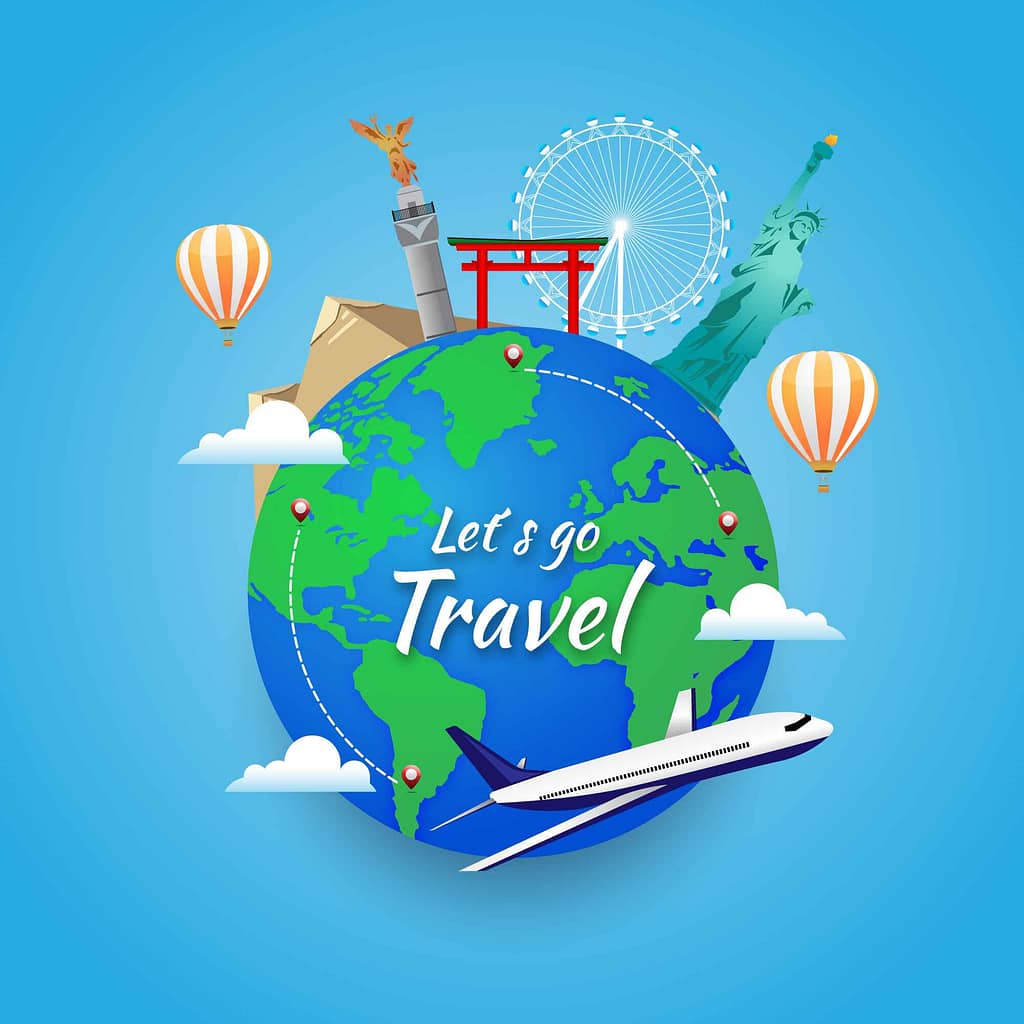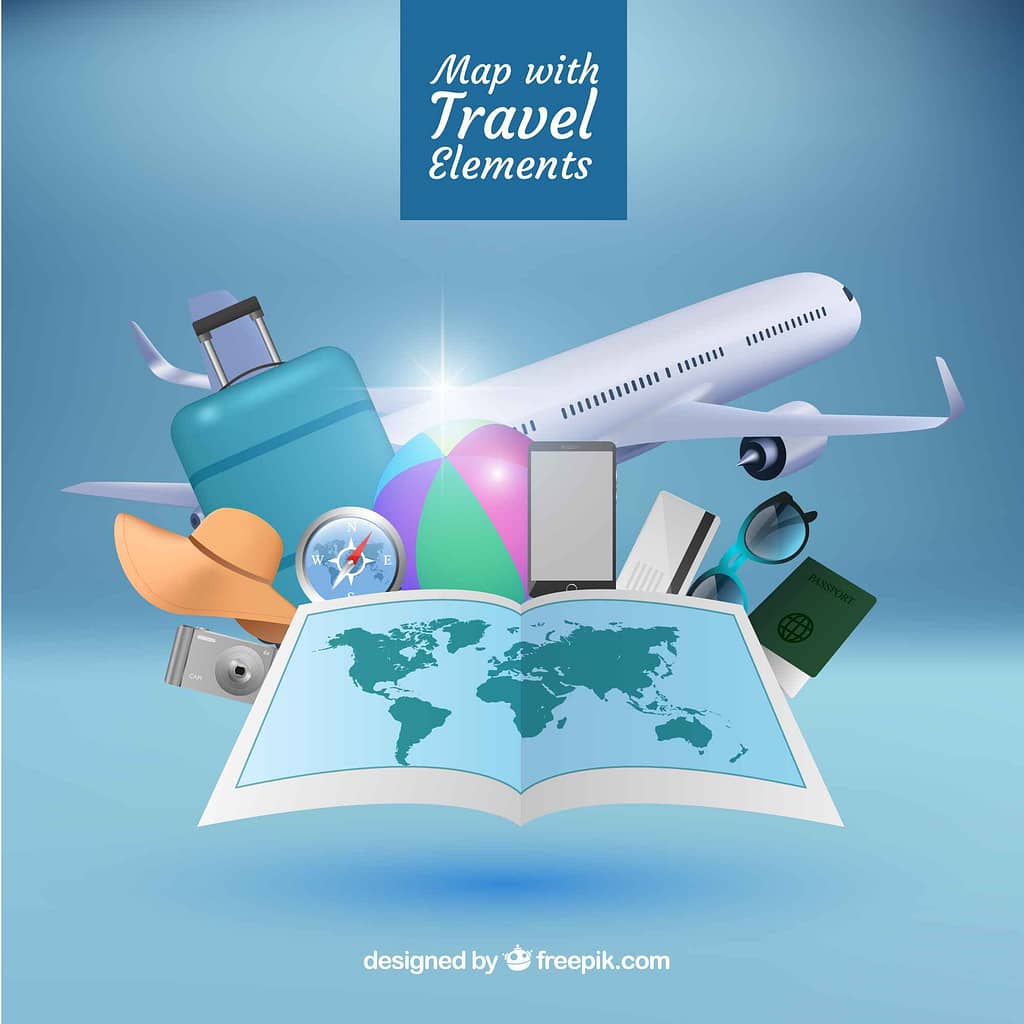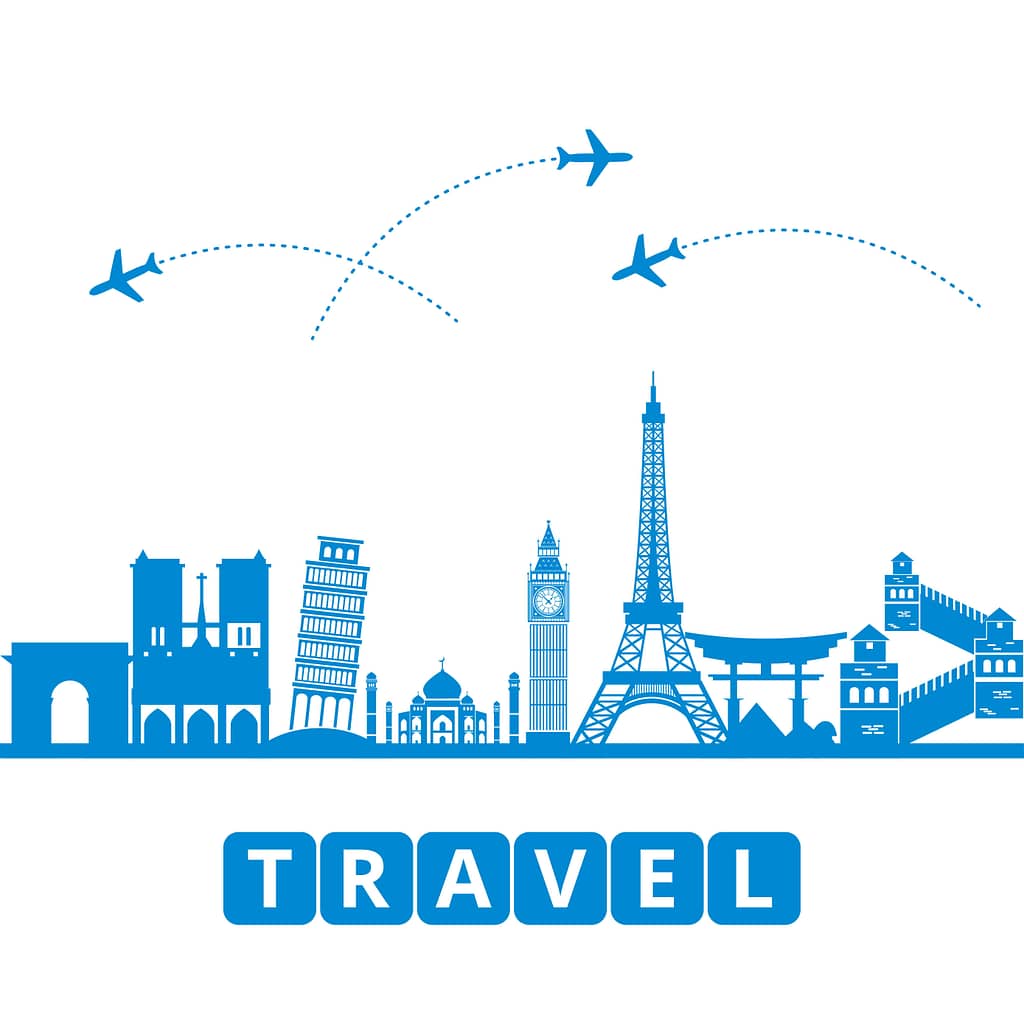how to start a working travel agency
The world of travel is undeniably enchanting, drawing people from all walks of life with promises of discovery, adventure, and relaxation. As global connectivity continues to expand, the demand for travel services is skyrocketing, presenting a wealth of opportunities for those with an entrepreneurial spirit.
In this article, we’ll explore the exciting realm of starting a travel agency, where the possibilities are as vast as the destinations they offer. Whether you’re a seasoned explorer or a budding businessperson, the travel industry beckons with promise and potential.
Join us as we embark on a journey to uncover the secrets of launching a successful travel agency. From understanding market dynamics to crafting a compelling brand and delivering unforgettable experiences, we’ll guide you through every step of the process. So pack your bags and let’s set out on this adventure together!
Understanding the Industry
The travel agency industry is a vibrant and diverse landscape, catering to a wide range of traveler preferences and needs. Let’s take a closer look at the different segments within the industry, key market trends, and the challenges and opportunities it presents.
Segments Within the Industry:
1. Leisure Travel: This segment focuses on providing vacation experiences for individuals and families looking to unwind, explore new destinations, and immerse themselves in different cultures. From all-inclusive resorts to customized tours, leisure travel agencies offer a variety of options to suit every traveler’s desires.
2. Corporate Travel: Business travel is a crucial aspect of the industry, serving professionals who need to attend meetings, conferences, and other work-related events. Corporate travel agencies specialize in managing the logistical aspects of business trips, including booking flights, accommodations, and transportation.
3. Adventure Travel: For thrill-seekers and nature lovers, adventure travel agencies offer adrenaline-pumping experiences such as hiking, mountain climbing, and wildlife safaris. These agencies cater to adventurers who crave excitement and seek out unique and challenging experiences.
4. Specialized Travel: Beyond the mainstream segments, there are niche markets catering to specific interests and demographics. This includes luxury travel for those seeking high-end experiences, eco-tourism for environmentally-conscious travelers, wellness retreats for health enthusiasts, and culinary tours for food lovers.
Market Trends:
Several trends are shaping the travel agency industry, reflecting changing consumer preferences and technological advancements:
1. Personalization: Travelers increasingly expect personalized experiences tailored to their individual preferences and interests. Travel agencies are leveraging technology to collect data and create customized itineraries that meet the unique needs of each traveler.
2. Sustainability: There is a growing emphasis on sustainability and responsible travel practices within the industry. Travel agencies are partnering with eco-conscious suppliers, promoting conservation efforts, and offering eco-friendly travel options to meet the demand for more environmentally-friendly experiences.
3. Digital Transformation: The rise of digital technology has transformed the way travel agencies operate and interact with customers. Online booking platforms, mobile apps, and virtual reality experiences have made it easier for travelers to research, plan, and book their trips conveniently from anywhere.
Challenges and Opportunities:
While the travel agency industry offers abundant opportunities for growth and innovation, it also presents several challenges:
1. Competition: The industry is highly competitive, with numerous players vying for market share. Travel agencies must differentiate themselves by offering unique experiences, excellent customer service, and targeted marketing strategies.
2. Regulatory Compliance: Travel agencies must navigate complex regulations and licensing requirements, ensuring compliance with consumer protection laws and industry standards. Staying up-to-date with regulatory changes is crucial to maintaining trust and credibility with customers.
3. External Factors: External factors such as economic downturns, natural disasters, and health crises can significantly impact the travel industry. Travel agencies must be adaptable and resilient, with robust contingency plans in place to mitigate risks and weather unforeseen challenges.
Despite these challenges, the travel agency industry remains ripe with opportunities for entrepreneurs willing to innovate and adapt to evolving consumer trends. By staying attuned to market dynamics, understanding customer needs, and delivering exceptional value, travel agencies can thrive in a competitive and ever-changing landscape.
Research and Planning: Building the Foundation for Success
Before embarking on the exhilarating journey of starting a travel agency, it’s crucial to anchor your plans in thorough research and strategic planning. Here’s why research and planning are the compass and map to guide you through the complexities of the travel industry:
Market Research:
Market research is your compass, helping you navigate the competitive landscape and uncover lucrative opportunities. By analyzing industry trends, consumer preferences, and market dynamics, you can identify untapped niches and tailor your offerings to meet the demands of your target audience.
Identifying Target Demographics:
Understanding your target demographics is like plotting a course towards your destination. Whether you’re catering to adventure enthusiasts, luxury travelers, or budget-conscious backpackers, knowing your audience’s preferences, motivations, and pain points is crucial for crafting compelling travel experiences that resonate with them.
Understanding Competitors:
Just as ships keep a close eye on rival vessels, studying your competitors is essential for staying ahead in the travel industry. Analyze their strengths and weaknesses, identify gaps in the market, and leverage insights to refine your own business strategy and differentiate your offerings.
Defining Unique Selling Propositions (USPs):
In a sea of travel agencies, your unique selling propositions (USPs) are like beacons that attract weary travelers seeking refuge. Whether it’s unparalleled customer service, exclusive partnerships with local vendors, or innovative technology solutions, your USPs set you apart from the competition and give travelers a reason to choose your agency over others.
Strategic Planning:
Once you’ve charted your course with research insights, it’s time to plot your strategic course. Develop a comprehensive business plan that outlines your goals, target market, marketing strategies, financial projections, and operational framework. A well-crafted plan serves as your roadmap, guiding your actions and decisions as you navigate the complexities of the travel industry.
Mitigating Risks and Maximizing Opportunities:
Just as ships prepare for stormy seas, prudent planning helps you anticipate risks and prepare contingency plans to safeguard your business against unforeseen challenges. Whether it’s economic downturns, natural disasters, or global pandemics, having a robust risk management strategy in place ensures your agency remains resilient in turbulent times.
In the vast ocean of the travel industry, research and planning are the sturdy vessel that carries your dreams to distant shores. By investing time and effort into understanding market dynamics, identifying target demographics, analyzing competitors, and defining unique selling propositions, you lay a solid foundation for success and chart a course towards entrepreneurial triumph in the exhilarating world of travel agency business.
Legal and Regulatory Considerations: Setting Sail with Compliance
Before launching your travel agency venture, it’s vital to navigate the legal waters to ensure smooth sailing. Here’s a clear breakdown of the key considerations:
Business Registration:
Begin by registering your business entity with the relevant government authorities. Choose your business structure and register your business name to establish your agency legally.
Licenses and Permits:
Ensure you have the necessary licenses and permits to operate your travel agency legally. This may include a travel agency license, essential for selling travel-related services such as flights and accommodations. Research and obtain all required permits to avoid complications.
Insurance:
Protect your agency with insurance coverage. Consider professional liability insurance to safeguard against errors or omissions and general liability insurance for broader protection against liabilities.
Compliance with Industry Regulations:
Familiarize yourself with industry regulations governing advertising, pricing transparency, consumer rights, and data protection. Compliance is crucial for building trust with clients and regulators alike.
Specific Location Requirements:
Be aware of any location-specific regulations or requirements. These may include additional licensing, tax obligations, or consumer protection laws. Conduct thorough research or seek legal advice to ensure compliance.
By addressing these legal and regulatory considerations upfront, you’ll establish a solid foundation for your travel agency. With compliance as your compass, you’ll navigate the complexities of the industry with confidence, setting course for success in the competitive marketplace.
Exploring Travel Agency Business Models: Finding the Right Fit for You
When starting a travel agency, choosing the right business model is crucial for success. Let’s delve into the different models available and their respective pros and cons to help you make an informed decision:
1. Online Travel Agencies (OTAs):
– Pros:
– Reach a wide audience: OTAs have a global reach, allowing you to attract customers from various locations.
– Lower overhead costs: Operating online reduces expenses associated with physical storefronts.
– Convenient booking process: Customers can easily browse and book travel services online, enhancing the user experience.
– Cons:
– Intense competition: OTAs face fierce competition from other online platforms, making it challenging to stand out.
– Reliance on technology: Technical issues or website downtime can disrupt business operations and affect customer satisfaction.
– Commission-based revenue: OTAs often earn revenue through commissions, which can impact profitability.
2. Brick-and-Mortar Agencies:
– Pros:
– Personalized service: Face-to-face interactions allow for personalized assistance and tailored travel experiences.
– Established reputation: Physical storefronts can help build trust and credibility with local customers.
– Direct relationship with clients: Building relationships with clients in person can lead to repeat business and referrals.
– Cons:
– Higher overhead costs: Rent, utilities, and other expenses associated with maintaining a physical location can be significant.
– Limited reach: Brick-and-mortar agencies may have a smaller reach compared to online counterparts.
– Geographic constraints: Your location may limit your ability to attract clients outside of your local area.
3. Home-Based Agencies:
– Pros:
– Flexibility: Operating from home allows for flexibility in working hours and reduces commuting time.
– Lower overhead costs: Home-based agencies save on rent and other expenses associated with physical storefronts.
– Work-life balance: Home-based entrepreneurs can achieve a better work-life balance by integrating work and personal life.
– Cons:
– Distractions: Working from home may come with distractions that can impact productivity.
– Limited space: Depending on your living situation, space constraints may limit your ability to expand your business.
– Perception challenges: Some clients may prefer working with traditional brick-and-mortar agencies due to concerns about professionalism or legitimacy.
4. Niche-Specific Agencies:
– Pros:
– Specialized expertise: Niche agencies can offer in-depth knowledge and expertise in specific travel segments.
– Targeted marketing: Focusing on a niche allows for targeted marketing efforts to attract a specific clientele.
– Competitive advantage: By specializing in a niche, you can differentiate yourself from broader competitors and appeal to a unique audience.
– Cons:
– Limited market size: Niche markets may have a smaller pool of potential clients compared to broader segments.
– Narrow focus: Specializing in a niche may limit your ability to diversify your offerings or adapt to changing market trends.
– Market saturation: Depending on the niche, there may be significant competition from other specialized agencies.
Choosing the Right Model:
Consider your goals, resources, and personal preferences when selecting a business model for your travel agency. Assess factors such as target market, competition, scalability, and financial considerations to determine which model aligns best with your vision for the business. Remember that flexibility and adaptability are key as you navigate the ever-evolving landscape of the travel industry.
Crafting Your Travel Agency’s Brand Identity: A Path to Success
Building a strong brand identity is vital for standing out in the competitive travel industry. Let’s explore key branding elements and strategies to help your travel agency shine:
1. Define Your Brand Identity:
– Start by defining your agency’s mission, values, and unique selling points (USPs). What makes your agency special, and what do you want clients to remember about you?
2. Logo Design:
– Invest in a professionally designed logo that reflects your agency’s personality and resonates with your target audience. Choose colors, fonts, and imagery that align with your brand’s identity.
3. Website Development:
– Create a user-friendly website that showcases your services and expertise. Ensure it’s easy to navigate and visually appealing to visitors. Include clear calls-to-action to guide potential clients through the booking process.
4. Social Media Presence:
– Engage with your audience on social media platforms by sharing valuable content, such as travel tips, destination guides, and customer testimonials. Interact with followers and build a community around your brand.
5. Content Marketing:
– Develop a content strategy to establish your agency as an industry authority. Create blog posts, articles, and videos that educate and inspire your audience. Share insider tips and travel hacks to showcase your expertise.
6. Email Marketing:
– Use email marketing to nurture relationships with potential clients. Send personalized newsletters with exclusive offers and travel deals. Segment your email list to deliver targeted content to different audiences.
7. Influencer Partnerships:
– Collaborate with influencers and travel bloggers to expand your reach. Partner with influencers who align with your brand values and target audience. Encourage user-generated content to build credibility.
8. Consistent Branding Across Channels:
– Maintain consistency in branding across all channels. Ensure your messaging, visuals, and tone of voice are cohesive and aligned with your brand identity.
By focusing on these branding elements and strategies, you can create a memorable brand identity for your travel agency. Consistently delivering exceptional experiences and building meaningful connections with your audience will help your agency thrive in the competitive travel market.
Forging Strategic Alliances: The Power of Partnering with Travel Suppliers
Establishing partnerships with travel suppliers is pivotal for the success of your travel agency. Let’s explore why these alliances matter and strategies for fostering fruitful relationships:
Importance of Partnerships:
1. Access to Inventory: Partnering with airlines, hotels, tour operators, and transportation companies grants you access to a wide range of travel products and services, enhancing your offerings to clients.
2. Competitive Advantage: Collaborating with reputable suppliers allows you to offer competitive pricing, exclusive deals, and unique experiences that set you apart from competitors.
3. Reliability and Trust: Working with trusted suppliers ensures reliability and quality in the services you provide to clients, building trust and loyalty in your brand.
4. Streamlined Operations: Establishing partnerships streamlines the booking process, saving time and effort for both your agency and clients.
Strategies for Successful Partnerships:
1. Negotiating Contracts:
– Conduct thorough research on potential suppliers and their offerings before entering negotiations.
– Highlight your agency’s strengths, such as your client base, marketing reach, and potential for future growth, to negotiate favorable terms.
– Seek flexibility in contracts to accommodate changing market conditions and client needs.
2. Securing Favorable Rates:
– Build strong relationships with suppliers based on mutual trust and respect.
– Demonstrate your agency’s value proposition and ability to drive business to suppliers to negotiate discounted rates or exclusive deals.
– Leverage volume-based incentives or loyalty programs to secure preferential pricing from suppliers.
3. Building Strong Relationships:
– Communicate regularly with suppliers to stay updated on new offerings, promotions, and industry trends.
– Provide feedback and suggestions for improvement to foster a collaborative partnership.
– Offer support and assistance to suppliers when needed, demonstrating your commitment to the success of the partnership.
4. Ensuring Compliance and Transparency:
– Adhere to all contractual obligations and industry regulations when working with suppliers.
– Maintain transparency in pricing, terms, and conditions to build trust and avoid misunderstandings.
– Resolve any issues or disputes promptly and amicably to preserve the integrity of the partnership.
By prioritizing strategic partnerships with travel suppliers and implementing effective negotiation strategies, you can enhance your agency’s offerings, provide exceptional value to clients, and position yourself for long-term success in the competitive travel industry.
Elevating Your Travel Agency with Technology
In today’s digital era, technology plays a pivotal role in the success of travel agencies. Let’s explore how technology can streamline operations and improve performance, along with essential tools and software recommendations:
1. Booking Management Systems:
– Purpose: Streamline bookings, reservations, and itineraries for clients.
– Recommendations: Platforms like Amadeus, Sabre, or Travelport offer comprehensive solutions, simplifying the booking process for flights, accommodations, and more.
2. Customer Relationship Management (CRM) Software:
– Purpose: Maintain and nurture client relationships, track interactions, and personalize communication.
– Recommendations: Consider Salesforce, HubSpot, or Zoho CRM for managing customer data, automating communication, and tracking sales opportunities.
3. Accounting Software:
– Purpose: Track financial transactions, manage invoices, and monitor expenses.
– Recommendations: Utilize QuickBooks, Xero, or FreshBooks for streamlined financial management, budgeting, and forecasting.
4. Marketing Automation Tools:
– Purpose: Automate marketing campaigns, streamline lead generation, and analyze performance.
– Recommendations: Platforms like Mailchimp, ActiveCampaign, or Marketo enable personalized campaigns, email automation, and comprehensive analytics.
5. Travel Agency Software Suites:
– Purpose: Integrate functionalities tailored to travel agencies into a comprehensive solution.
– Recommendations: Explore Travefy, TravelWorks, or Lemax for all-in-one solutions, combining booking management, CRM, accounting, and marketing tools.
6. Website and Content Management Systems (CMS):
– Purpose: Create and manage a professional website, publish content, and optimize online visibility.
– Recommendations: Use WordPress, Wix, or Squarespace for customizable templates, intuitive editors, and SEO features to enhance your online presence.
By embracing technology and leveraging these tools and software solutions, you can streamline operations, enhance customer experiences, and position your travel agency for success. Assess your agency’s specific needs to select the right technology solutions aligned with your goals and budget.
Elevating Your Travel Agency’s Customer Service: Creating Memorable Experiences
Exceptional customer service is the cornerstone of a successful travel agency. Here’s why it’s crucial and strategies to ensure your clients receive top-notch service:
1. Importance of Exceptional Customer Service:
– Client Retention: Providing exceptional service fosters client loyalty, encouraging repeat business and referrals.
– Positive Reputation: Satisfied clients are more likely to share their experiences, enhancing your agency’s reputation and attracting new customers.
– Competitive Advantage: Outstanding service sets you apart from competitors and strengthens your agency’s position in the market.
2. Strategies for Personalized Interactions:
– Get to Know Your Clients: Take the time to understand your clients’ preferences, interests, and travel goals.
– Tailored Recommendations: Offer personalized recommendations and curated experiences based on each client’s unique needs and preferences.
– Stay in Touch: Maintain regular communication with clients before, during, and after their trips to address any questions or concerns.
3. Handling Inquiries and Complaints:
– Prompt Responses: Respond to client inquiries and requests promptly, demonstrating your commitment to their satisfaction.
– Active Listening: Listen attentively to clients’ concerns and empathize with their perspective.
– Effective Resolution: Resolve issues promptly and professionally, offering solutions that exceed clients’ expectations.
4. Exceeding Customer Expectations:
– Surprise and Delight: Go above and beyond to surprise clients with unexpected gestures or amenities during their travels.
– Anticipate Needs: Anticipate clients’ needs and proactively offer assistance or recommendations to enhance their experience.
– Post-Trip Follow-Up: Follow up with clients after their trip to gather feedback, express gratitude, and address any lingering questions or concerns.
5. Empowering Your Team:
– Training and Development: Provide ongoing training and development opportunities to empower your team with the skills and knowledge to deliver exceptional service.
– Empowerment: Empower your staff to make decisions and take ownership of client interactions, fostering a culture of accountability and excellence.
6. Continuous Improvement:
– Feedback Mechanisms: Implement feedback mechanisms to gather insights from clients and identify areas for improvement.
– Adaptability: Stay agile and adaptable, evolving your service offerings based on changing client preferences and industry trends.
By prioritizing exceptional customer service and implementing these strategies, you can create memorable experiences for your clients, foster loyalty, and position your travel agency for long-term success in the competitive marketplace. Remember, every interaction is an opportunity to delight your clients and leave a lasting impression.
Navigating Financial Waters: Smart Management for Your Travel Agency
Effective financial management is crucial for the success and sustainability of your travel agency. Let’s explore key principles and strategies to ensure sound financial practices:
1. Budgeting:
– Create a Comprehensive Budget: Develop a detailed budget that accounts for all expenses, including operational costs, marketing expenses, staff salaries, and overheads.
– Monitor and Adjust: Regularly review your budget and adjust as needed to align with evolving business needs and financial goals.
2. Pricing Strategies:
– Value-Based Pricing: Determine prices based on the value of the services you offer, taking into account factors such as destination popularity, seasonality, and client preferences.
– Competitive Analysis: Conduct market research to understand competitors’ pricing strategies and position your agency competitively while maintaining profitability.
3. Revenue Forecasting:
– Utilize Historical Data: Analyze past performance and trends to forecast future revenue accurately.
– Consider Seasonality: Anticipate fluctuations in demand based on seasonal trends and plan accordingly to optimize revenue generation.
4. Managing Cash Flow:
– Monitor Inflows and Outflows: Keep a close eye on cash flow by tracking incoming payments from clients and outgoing expenses such as supplier payments and operational costs.
– Maintain Adequate Reserves: Build reserves to cover unforeseen expenses or periods of low revenue to ensure business continuity.
5. Expense Tracking:
– Categorize Expenses: Categorize expenses to gain insights into where your money is being spent, allowing you to identify areas for cost-saving or optimization.
– Control Overheads: Keep overhead costs in check by negotiating favorable terms with suppliers, optimizing operational processes, and eliminating unnecessary expenses.
6. Monitoring Profitability:
– Calculate Profit Margins: Regularly calculate profit margins to assess the financial health of your agency and identify opportunities for growth.
– Benchmark Performance: Compare your agency’s profitability against industry benchmarks to gauge performance and identify areas for improvement.
7. Reinvestment in the Business:
– Allocate Resources Wisely: Reinvest profits back into the business to fuel growth initiatives such as marketing campaigns, technology upgrades, staff training, and expanding service offerings.
– Balance Growth and Stability: Strike a balance between investing in growth opportunities and maintaining financial stability to ensure sustainable business growth over the long term.
By implementing these financial management principles and strategies, you can optimize the financial performance of your travel agency, strengthen profitability, and position your business for long-term success in the dynamic travel industry. Remember to prioritize prudent financial decision-making and adaptability to navigate economic uncertainties and seize growth opportunities effectively.
Charting Your Course: Embark on Your Journey to Travel Agency Success
In this comprehensive guide, we’ve explored the essential steps and strategies for starting and running a successful travel agency. Let’s recap the key points covered and inspire you to take action towards realizing your dream of becoming a travel entrepreneur:
1. Understanding the Industry: Delve into the diverse segments of the travel agency industry, discussing market trends, challenges, and opportunities, empowering you with insights to navigate this dynamic landscape.
2. Research and Planning: Emphasize the importance of thorough research and planning, guiding you through market research, identifying target demographics, understanding competitors, and defining unique selling propositions to set your agency apart.
3. Legal and Regulatory Considerations: Outline the legal and regulatory requirements for starting a travel agency, ensuring compliance with business registration, licenses, permits, insurance, and industry regulations.
4. Business Model: Explore various business models, including online, brick-and-mortar, home-based, and niche-specific agencies, providing insights into the pros and cons of each model to help you determine the best fit for your goals and resources.
5. Building Your Brand: Highlight the importance of crafting a strong brand identity for your agency, offering guidance on logo design, website development, social media presence, and marketing strategies to attract and retain clients.
6. Partnering with Suppliers: Discuss the significance of establishing partnerships with travel suppliers and provide strategies for negotiating contracts, securing favorable rates, and building strong relationships to enhance your offerings and competitiveness.
7. Technology and Tools: Recognize the role of technology in running a successful agency, recommend essential tools and software for managing bookings, customer relations, accounting, and marketing automation, empowering you to streamline operations and enhance client experiences.
8. Providing Exceptional Customer Service: Emphasize the importance of delivering exceptional customer service, offering strategies for personalized interactions, handling inquiries and complaints, and exceeding customer expectations to foster loyalty and drive business growth.
9. Financial Management: Provide guidance on budgeting, pricing strategies, revenue forecasting, cash flow management, expense tracking, monitoring profitability, and reinvesting in the business, ensuring sound financial practices to support your agency’s success.
Now, armed with knowledge and insights, it’s time to take the leap and embark on your journey to travel agency success. Whether you’re a seasoned entrepreneur or a budding enthusiast, the travel industry offers abundant opportunities for innovation, growth, and fulfillment.
Remember, success doesn’t happen overnight. It requires dedication, perseverance, and a willingness to adapt to changing market dynamics. Stay agile, continue learning, and embrace challenges as opportunities for growth.
For further learning, consider exploring industry publications, attending relevant conferences or workshops, and networking with fellow professionals in the travel industry. Seek mentorship from experienced entrepreneurs and leverage online resources to expand your knowledge and skills.
The world is waiting to be explored, and you have the power to turn your passion for travel into a thriving business. Bon voyage on your entrepreneurial journey, and may your travel agency soar to new heights of success!
Starting a Travel Agency FAQs:
How do I start a travel agency from scratch?
– Research the industry and market trends.
– Develop a business plan outlining your services, target market, and financial projections.
– Register your business and obtain necessary licenses and permits.
– Establish partnerships with travel suppliers.
– Invest in technology and marketing to promote your agency.
Do I need prior experience in the travel industry to start an agency?
– While prior experience can be beneficial, it’s not always necessary. You can gain knowledge through research, training programs, or by hiring experienced staff.
What are the legal requirements for starting a travel agency?
– Legal requirements vary by location but typically include business registration, licenses, permits, and compliance with industry regulations. It’s essential to consult legal experts to ensure compliance.
How much can I expect to earn from a travel agency?
– Earning potential depends on various factors such as the size of your agency, services offered, target market, and industry trends. Successful agencies can generate substantial revenue through commissions, service fees, and markup on travel packages.
Do travel agents earn commissions?
– Yes, travel agents often earn commissions from travel suppliers such as airlines, hotels, and tour operators. Commissions vary depending on the type of booking and negotiated agreements with suppliers.
Can I increase my earnings through additional services?
– Absolutely! Many travel agencies offer additional services such as travel insurance, visa assistance, destination weddings, and group travel arrangements, which can contribute to increased earnings.
What are the typical expenses involved in running a travel agency?
– Typical expenses include office rent, staff salaries, marketing costs, technology and software expenses, insurance, travel agent association fees, and ongoing training and development.
How can I manage expenses effectively to ensure profitability?
– Budgeting, monitoring expenses closely, negotiating favorable terms with suppliers, optimizing operational processes, and investing in cost-effective marketing strategies can help manage expenses effectively.
Are there any hidden costs associated with starting a travel agency?
– While starting a travel agency can be relatively low-cost compared to other businesses, it’s essential to budget for potential hidden costs such as regulatory fees, software subscriptions, and unexpected expenses during the startup phase.





